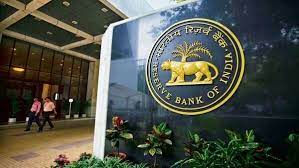
Dimensions of climate change addressed in RBI report
The Reserve Bank of India (RBI) recently released a report for the fiscal year 2022-23, with a focus on sustainable growth and reducing carbon emissions. The research analyses four essential aspects of climate change, including its macroeconomic repercussions, implications for financial stability, and methods for mitigating climate risks.
| Article and Schedule Quiz | Start Test! |
India’s green financing requirement estimated to be 2.5% of GDP annually till 2030:
According to the research, India requires a minimum of 2.5% of GDP annually for green funding till 2030. India has made tremendous progress towards meeting its climate commitments, ranking first among G-20 countries in the Climate Change Performance Index for 2023. India aims to achieve net-zero emissions by 2070, which would require a reduction of around 5% annually in the energy intensity of GDP and an 80% improvement in the energy mix in favor of renewables by 2070-71.
RBI emphasizes significant improvement in energy mix to attain net-zero goal by 2070:
The RBI emphasized the need for a balanced policy intervention, enabling India to achieve its green transition targets by 2030 and ultimately attain the net-zero goal by 2070. It highlighted the significance of progress across all policy levers to ensure a successful transition to a greener and cleaner India.